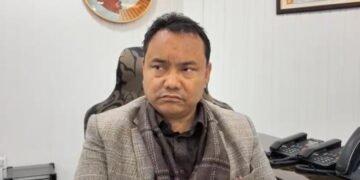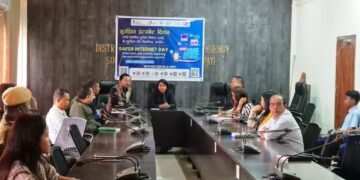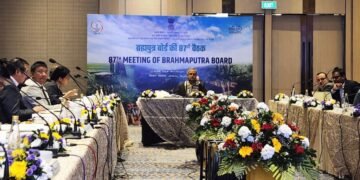The demand for equitable distribution of family property among all children which was raised from time to time by Mait Shaphrang is not a new one.
It may be mentioned that on April 15, four organisations which included Mait Shaphrang, KSU, FKJGP and HNYF held a meeting with some representatives of Seng Kur (clans) to discuss the need to introduce some amendments to the Meghalaya Succession to Self Acquired Property (Khasi and Jaintia Special Provision) Act 1986.
According to Mait Shaphrang convener Michael N. Syiem, the issue related to equitable succession to ancestral and self-acquired property emerged way back in 1982.
Syiem said that in 1982, a group of former KSU leaders met and discussed the need to give all children of the family a share of the family property.
“Accordingly, together with some concerned friends and members of the Tribal United Front led by late Viefil Slong, we drafted a bill which was to be presented to the Khasi Hills Autonomous District Council. This bill was however taken up and passed by the Meghalaya Legislative Assembly and received the assent of the Governor on May 23, 1986 as the Meghalaya Succession to Self Acquired Property (Khasi and Jaintia Special Provision) Act 1986. It was published in the Meghalaya Gazette, Extraordinary on June 3, 1986,” Syiem informed.
However, according to Syiem, the principal Act of 1986 mentioned only the self-acquired property of the parents that can be willed out to their children.
“But this self-acquired property of the parents, in the next generation, becomes ancestral property to the children and it reverts back to the youngest daughter as per our present system of inheritance. So therefore, now we are demanding that only this part of the ancestral property that is inherited from the parents and grandparents be allowed to be willed out to any of their children and successive generations and not the ancestral property that belongs to the clan,” he said.
Syiem also said that in this age of unemployment, economic empowerment of all the children in the Khasi community is a must to give collateral for availing loans from financial institutions.
He also said that there is a need to amend the 1986 Act to include the word ‘equitable’ meaning ‘fair and just’. He also said that the word ‘equitable’ gives the parents the flexibility for willing out their property to their children, sons and daughters.
“If in certain cases, the parents in their wisdom feel that the youngest daughter deserves the bulk or the entire share of property, this law will allow them to do so by will. In a family where there are only sons, a will which gives the sons the right to family property will prevent the clan from snatching away the property from them when their parents expire, which is usually the case because of the absence of this law,” Syiem added.
While expressing happiness that more and more families are equitably distributing their properties to all their children, sons and daughters, Syiem emphasised that a law should be in place to strengthen and legalise the distribution of inheritance by way of a will or by way of a gift.
























